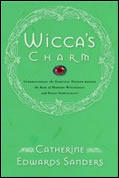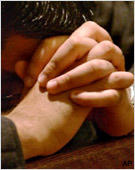Tuesday, September 27, 2005
"On Getting Older" by Author Unknown
This post is dedicated to all those who feel the last stage of life creeping up on them. We are wise to recognize that we can't stop it!
We can, however, ensure we do our best to enjoy every moment that God gives us.
Enjoy ...
“Old Age”
"Old age, I’ve decided, is a gift.
"I am now, probably for the first time in my life, the person I have always wanted to be. Oh, not my body! I sometime despair over my body ... the wrinkles, the baggy eyes, and the sagging butt. And often, I am taken aback by that old person that lives in my mirror. But I don't agonize over those things for long.
"I would never trade my amazing friends, my wonderful life, my loving family for less gray hair or a flatter belly. As I've aged, I've become more kind to myself, and less critical of myself. I've become my own friend. I don't chide myself for eating that extra cookie, or for not making my bed, or for buying that silly cement gecko that I didn't need, but looks so avante garde on my patio. I am entitled to overeat, to be messy, to be extravagant. I have seen too many dear friends leave this world too soon; before they understood the great freedom that comes with aging. Whose business is it if I choose to read or play on the computer until 4 a.m., and sleep until noon . . or go to the casino
bed, or for buying that silly cement gecko that I didn't need, but looks so avante garde on my patio. I am entitled to overeat, to be messy, to be extravagant. I have seen too many dear friends leave this world too soon; before they understood the great freedom that comes with aging. Whose business is it if I choose to read or play on the computer until 4 a.m., and sleep until noon . . or go to the casino
"I will dance with myself to those wonderful tunes of the 60's, and if I, at the same time, wish to weep over a lost love... I will.
"I will walk the beach in a swim suit that is stretched over a bulging body, and will dive into the waves with abandon if I choose to, despite the pitying glances from the bikini set. They, too, will get old.
"I know I am sometimes forgetful. But there again, some of life is just as well forgotten ... and I eventually remember the important things. Sure, over the years my heart has been broken. How can your heart not break when you lose a loved one, or when a child suffers, or even when a beloved pet gets hit by a car? But broken hearts are what give us strength and understanding and compassion. A heart never broken is pristine and sterile and will never know the joy of being imperfect.
"I am so blessed to have lived long enough to have my hair turn gray, and to have my youthful laughs be forever etched into deep grooves on my face. So many have never laughed, and so many have died before their hair could turn silver. I can say "no", and mean it. I can say "yes", and mean it.
"As you get older, it is easier to be positive. You care less about what other people think. I don't question myself anymore. I've even earned the right to be wrong.
"So, to answer your question, I like being old. It has set me free. I like the person I have become. I am not going to live forever, but while I am still here, I will not waste time lamenting what could have been, or worrying about what will be. And I shall eat dessert every single day.
Now It's Your Turn!: What do you enjoy most about getting older …no matter how old you are? To what do you relate most in what the anonymous author shares above? (My 'Comment Section', in which you can share anonymously, will open to you when you click on "comments" immediately below this post.)
Saturday, September 24, 2005
Review: “Wicca's Charm: Understanding the Spiritual Hunger Behind the Rise of Modern Witchcraft and Pagan Spirituality” by Catherine Edwards Sande
 Wicca's Charm sounds interesting. I am adding it to my reading list.
Wicca's Charm sounds interesting. I am adding it to my reading list.
Here's the review by Anastazia M.E. Skolnitsky complemented by some of my backgrounder hyperlinks ...
Wicca's Charm
"Wicca's Charm is a fascinating trek into Wicca, a little known subculture in America that is rapidly gaining influence among young people, women and spiritual seekers. Written by Catherine Edwards Sanders, Wicca's Charm is especially valuable because it approaches the discussion of Wicca from a reporter's viewpoint. This was done in order to foster understanding between Wiccans and Christians and to help readers weigh the differences between the two worldviews. Wicca's Charm is the result of carefully compiled field research, which was supported by a yearlong journalism fellowship.
"Sanders engages her subject with wisdom and sympathy, explaining the animosity some 'neo-pagans' or Wiccans, feel toward the church, while emphasizing that a compassionate approach by Christians can build on the respect Wiccans have for Jesus, if not established religion. Several case studies dealt with the contrast between those who were wounded versus those who were nurtured by Christians during their periods of doubt. Not surprisingly, those whose questions were met with empathy and open dialogue proved more likely to eventually embrace Christianity.
"This book provides a timely guide for confused parents, loved ones, and others attempting to relate to the neo-pagans in their lives. Wicca's Charm discusses the power of the witchcraft practiced by self-styled witches, confirming spiritual forces already acknowledged by Christians and Wiccans. Indeed, many of the witches interviewed by Sanders reported having some kind of disturbing encounter during or after a ceremony. Wicca's Charm also provides useful background on the history and psychology behind Wiccan practices and sects.
"Sanders' insights will prove surprising to many readers, as these devotees of modern pantheism and goddess worship claim lineage to pre-Christian religions, acknowledging no objective good or evil. Wiccans do not believe in the existence of Satan, despite many outsiders' perception of Wiccans as Satanic. With the exception of the Wiccan Rede, which advises “do what you will, but harm none,” Wicca lacks fundamental principles. While this lack of structure might seem too fluid to inspire confidence, modern pagans find comfort in Wicca's emphasis on ritual, acknowledgement of life's milestones and respect for the earth.
"Wiccan observance of the cycles of life and nature appeal to many young, educated, and possibly “green” Americans, who feel that urban modernity has isolated them from an idealized state of nature. Conversely, Christianity is growing in much of Africa and South America , where people are more intimately connected with nature and its hazards. They are thus more likely to embrace the protection of an all-powerful God, rather than communion with an unpredictable earth goddess, who cannot shield them from natural blights and disasters.
"Some of Sanders' most riveting material is gleaned from her many travels as a reporter embedded in Wiccan culture, including a Halloween trip to Salem, Massachusetts. Sanders also explores the political offshoots of Wicca, ranging from anti-globalization protests in New York City , to the more disturbing elements of militant feminism in Dianic Wiccan practices. While providing a striking look at some of the movement's fringe elements, Wicca's Charm also presents a framework for understanding what motivates more mainstream attraction to Wicca, or “The Craft.”
"Sanders presents an engaging combination of documentary and social commentary. She has produced a book that will surely appeal to readers curious about “the rise of modern witchcraft and pagan spirituality” in American culture.
"In explaining the roots of estrangement from the Church, Sanders effectively challenges Christians to respond to these needs by articulating the role and nature of womanhood in Christianity as a counterbalance to the more vocal and sometimes self-centered feminism of Wicca. Wicca's Charm also stresses the Christian responsibility to be effective stewards of the environment. Readers will leave with a clear understanding of Wicca, how the Church can effectively approach Wiccans, and why some have left Christianity in search of more satisfying spirituality. It is also a brilliant treatise on how Christianity, and specifically Jesus Christ, addresses the grievances of Wiccans and other seekers who have left the Christian faith."
© 1995-2005 Townhall.com All Rights Reserved.
About the Reviewer: Anastazia Skolnitsky graduated in 2005 with a BA in International Politics from George Mason University, where she also studied history. Currently interning with Townhall.com, she is pursuing an MSc in Russian and Post Soviet Studies from the London School of Economics.
Now It's Your Turn!: What do you think and feel is behind the spread of non-Christian cults and pagan religions like Wicca in North America? Does is cause you concern as a Follower of Jesus? (My 'Comment Section', in which you can share anonymously, will open to you when you click on "comments" immediately below this post.)
Wednesday, September 21, 2005
"Fine Line Revealed Between Creativity and Insanity" By Ker Than
For some time, there has been a commonly held belief that there is only a fine line between creativity and insanity. A small group of people known as "schizotypes" may essentially live on that line. It is amazing how much of the forward progress made in history has been by people who weren't conventional, but rather thought in odd, new ways.
A recent article by "Live Science" reports on a study that indicates the line between creativity and insanity are closer than you may have thought.
The Line Between Genius and Madness
Schizotypes fall in the midpoint between sanity and insanity. They do not suffer most of the symptoms of schizophrenia, such as paranoia and hallucinations, but they often exhibit both eccentricities and enhanced creativity. A new study confirms that both may come from their using more of the right side of the brain than the rest of us.
Scanning Your Brain
The link between creativity and aberrant behavior has generally been based on anecdotal evidence. The new study used brain-imaging techniques to investigate the creative process in an experimental manner, with "creativity" being defined as the ability to generate something new and useful from pre-existing materials or ideas.
The researchers compared the creative thinking processes of schizotypes, schizophrenics, and normal control subjects.
Schizotypes Used Their Right Brain More
Scans showed that both sides of the brain in all three types were active when making novel associations. But in schizotypes, the activity in the right hemisphere was much higher when compared to the control subjects, and they also came up with a wider variety of creative ideas.
It was theorized that schizotypes may have more access to the right hemisphere of the brain, or that they may exhibit more efficient communication between the two hemispheres than the rest of us.
Digging Deeper
To read more about the actual study and access related resources click here for this “Live Science” article.
Now It's Your Turn!: What activities or practises do you use to enhance your creativity? (My 'Comment Section', in which you can share anonymously, will open to you when you click on "comments" immediately below this post.)
Until next time, how can I help you? (You can contact me by clicking here. Also, contact me directly to be added to Patton Associates’ S-M-A-R-TBriefing™ Mailing List. Check out recent samples here.)
Sunday, September 18, 2005
My God-Incident
There are jokes told about God speaking to us when we are simply flipping through the Bible while pondering an issue. Have you ever wondered about whether it really happens? I have!
No longer will I wonder. For today, it happened to me!
 During my Quiet Time this morning, I was reading an excellent little booklet from RBC Ministries, in their 'Discovery Series'. It is called "Praying with Confidence, Overcoming Disappointment in Prayer.” On page 18, I had just read: "We will not discover the confidence of being 'at one with God', however, if we have not first been honest about the thoughts and emotions of our own hearts. Integrity of soul is basic to overcoming disappointment with God and developing confidence in prayer."
During my Quiet Time this morning, I was reading an excellent little booklet from RBC Ministries, in their 'Discovery Series'. It is called "Praying with Confidence, Overcoming Disappointment in Prayer.” On page 18, I had just read: "We will not discover the confidence of being 'at one with God', however, if we have not first been honest about the thoughts and emotions of our own hearts. Integrity of soul is basic to overcoming disappointment with God and developing confidence in prayer."
The idea struck me as powerful. So, I stopped. I pondered where I might find this principle confirmed in God’s Word.
Psalm 139:23-24 came to me as verses that encourage us to ask Holy Spirit to reveal our true thoughts and feelings to our conscious mind. My memory of them was shaky. I flipped open my Bible to the Psalms to re-check what they said. I happened to land on Psalm 39.
Verse 2 caught my attention. There, before my eyes, was exactly about what I had been wondering.
To my amazement I read: "I kept completely silent, but it did no good, and I hurt even worse. I felt a fire burning inside, and the more I thought, the more it burned, ...". (Psalms 39:2-3 CEV)
Now It's Your Turn!: Have you had a God-incident similar to mine? What do you think and how do you feel about God conversing with us? (My 'Comment Section', in which you can share anonymously, will open to you when you click on "comments" immediately below this post.)
Wednesday, September 14, 2005
Impractical Christianity by Peter K. Nelson
Many North American Jesus Followers have a big problem! They misunderstand what the Bible says about spiritual growth. This is the thesis of Peter Nelson, a Bible School teacher, in his article below. I agree with most of what he shares below. Hopefully, you will find it thought-provoking as I did.
Now here’s Peter …
Pragmatism runs rampant in American Christianity. If faith does not "work," it lacks value. We expect prompt and measurable results from knowing Christ. Concrete, visible changes in our lives show that the gospel is relevant and its transforming power is for real: bad habits broken, strained relationships restored, church attendance figures on the rise, giving that's ahead of last year's. If you can't graph positive results, what is the point?
Following Christ makes a difference, and we take special pleasure in the dramatic before and after of practical spiritual progress.
In recent decades, pragmatism has been recycled in the form of self-esteem doctrines, the therapeutic gospel, and the health-and-wealth message proclaimed by prosperity teachers. More recently we have seen outcome-based education and the endless stream of mission statements we must fashion to spell out in advance just how God may transform our lives. Thoughtful challenges to these teachings have been made, but we keep leaning in the pragmatic direction.
In "The Pressure's Off", Larry Crabb gives a sobering rebuke to American evangelicals. (Gary's note: And we Canadians too!)
American evangelicals. (Gary's note: And we Canadians too!)
"I have no strategies in mind to give you a better marriage, better kids, a more complete recovery from sexual abuse, or quicker healing after your divorce. Nor, I believe, does God." He adds, "We can't get life to work; it never will until heaven."
Instead of a better life, we're offered a better hope of intimacy with God—a relationship that carries us through and not around pain and loss. Crabb may paint too bleak a picture at times, but can-do American believers caught up in the cultural trappings of visible success need to grapple with his sobering words.
The Great Gulf
In "Baptism + Fire", Mark Galli writes, "God loves you and has a difficult plan for your life." God the Father announces that He is well pleased with his beloved Son (Mark 1:11), then the Spirit promptly drives him into the wilderness to face severe temptation. Solzhenitsyn endured long years of forced labor and imprisonment, yet he found that trials brought him into a renewed relationship with God. Misery is preparation for ministry.
All of this implies that God intentionally leads his people through hardship and loss for their good and for the advance of his kingdom (see Gen. 50:20; 2 Cor. 1:4, 9). The dark night of the soul is a means of weaning believers from their destructive dependence on anything but the Lord himself. Contrary to superficial American expectations, God does some of his best work when we can't make life "work," when all the outward measures spell chaos or disaster.
We can take this a step further by adding sin to the equation. The Master turns the tables on corruption from within as well as hardships from without. God's sovereign orchestration of messy lives includes redirecting the momentum from our sinful thoughts and actions toward our ultimate good. When we disobey the Lord and head down a collision course with holiness, eventually there is wreckage: devastated marriages, runaway debt, pretense and deception that hollow out the conscience. By letting us stumble in sin and shatter our brash confidence, by undercutting our self-righteousness and brazen pride, the Lord forces us to accept the soul salve of humility. God positions us to hope in his grace and anticipate heaven's bliss, rather than fall for some slick scheme of glitter and blessings today.
Imagine the novice mountain climber setting out to scale the grand peak called Holiness. Although the summit isn't visible from base camp, the eager mountaineer imagines that it can't be "that far" away. It's only after ascending well beyond the foothills that the majestic summit finally comes into view, and it leaves the climber's jaw hanging. A true sense of the scale of the venture begins to register.
Many Christians have seen that the further they ascend in holiness, the more they realize how far they have to go. Nineteenth-century Anglican bishop J. C. Ryle contends, "The more light we have, the more we shall see our own imperfection." Theologian F. B. Meyer asserts, "The nearer we live to God, the more sensitive we become to the presence of sin."
C. S. Lewis argues that the holier a man is, the more he is aware of his sinfulness. In The Pursuit of Holiness, Jerry Bridges puts it this way: We may advance in the practice of holiness, but our knowledge of the perfect holiness to which we are called (1 Pet. 1:15-16) increases at a faster rate, so that there is an ever-widening gap between the two.
American Christians often have a hard time coming to terms with this gulf, this ever-increasing loss of control; there must be a way to relieve the tension. Yet spiritual maturation is the humbling and Christ-exalting process of realizing that the Cross fills this expanding gap—that the Cross is ever so much bigger than you first imagined!
In the evangelical tradition, we've sometimes thought of sin as a problem for the lost. Unbelievers need to come to Christ for forgiveness of sins. But the troubling truth is that sin is our problem, too. The Scriptures clearly show that Christians commit sin.
That's why we need a pattern of daily confession (Matt. 6:9-13); that's why John taught that to say we do not sin is simply lying (1 John 1:8); that's why James urged believers to confess their sins to one another (James 5:16). What's more, the most prominent saints in the Bible—Abraham, Sarah, Moses, David, Peter, et al.—stumbled in sin again and again.
This, of course, is not to encourage sin but to help us face the facts: Authentic followers of Christ are sinners until the day they die, and the more authentic Christians further up the slope are the ones who are beginning to realize the distance between their holiness and the perfection of Christ.
The way forward for Western and other imperfect Christians is the path of humility and brokenness. Of course, humility and brokenness don't sell very well from the pulpit, not to mention in our society. But that's irrelevant. What matters is that the Lord, in his sovereign ingenuity, wills to teach us trust and humble dependence by bringing us through hardship; trials represent the roundabout, yet only true way toward spiritual maturation. And the Lord includes among these hardships the spiritual turmoil suffered by forgiven sinners who become painfully aware they are far from the peak of holiness.
Church of Sin and Brokenness
Are humility and honest confession characteristic of our churches? Not much of the time. Increasingly common is the self-assured, goal-oriented, achievement-driven, human-centered outlook. What would the evangelistic impact be if the popular profile of today's Christian emphasized sin and brokenness, if we just went public and admitted it:
"This is who we are, prone to wander, slow to learn, still in process, far from having 'arrived,' grateful for mercy … so don't expect anything else."
Such honesty could go a long way in reforming the "holier than thou" image Christians have in the minds of many. Those who stay away from the church because they think the saints are so saintly might see the truth and feel more welcome to come into the hospital with the other invalids and seek the Great Physician's care. The hypocrisy factor that repels many could be reversed, and a countercultural Christian honesty would send a shocking message to our highly politicized, cynical society, in which almost no one can be trusted and image is everything.
Ironically, yet thankfully, all of this could shift the focus of attention off of sloppy saints—like me, like you—and onto a God whose patience and love are utterly beyond comprehension, a God of grace and glory worthy of our deepest gratitude and most intense admiration.
Peter K. Nelson is visiting professor of New Testament at Wheaton College, Illinois.
Copyright © 2005 Christianity Today.
This article first appeared in the September 2005 issue of "Christianity Today" (Vol. 49, No. 9, Page 80) as reported in "CT Direct" a publication of sister organization "ChristianityToday.com". Used by permission of Christianity Today International, Carol Stream, IL 60188.
Now It's Your Turn!: What do you think and how do you feel about what Nelson writes above? What about "faith" do you struggle with most? (My 'Comment Section', in which you can share anonymously, will open to you when you click on "Comments" immediately below this post.)
Until next time, how can I help you? (You can contact me by clicking here. Also, contact me directly to be added to Patton Associates’ S-M-A-R-TBriefing™ Mailing List. Check out recent samples here.)
